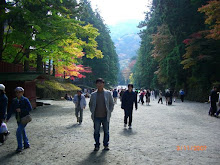While the US interests for Cambodia come mainly from terrorism, China involvement is driven by economic interests.
More than any other Southeast Asian country, Cambodia finds itself caught in the middle of competing United States and Chinese diplomatic overtures. With Washington offering bilateral strategic initiatives and Beijing rich financial assistance, Prime Minister Hun Sen has deftly balanced the country's diplomacy between the two superpowers to his government's political advantage.
Cambodia's economy is expanding at double digit growth rates and China's economic interest in the country has intensified since 2005, when US oil company Chevron discovered what some have projected are large stores of oil and gas off the country's southern coast. Those growing commercial ties were witnessed in the establishment in February of a special economic zone at the coastal town of Sihanoukville, from which goods will be produced for export duty free to China.
While China's economic influence grows, that of the US is on the wane. In recent years the US has given around $150 million in annual economic aid, a small fraction of China's commercial patronage. At the same time US-Cambodian trade ties have fallen off, seen in the 30% year-on-year decline in garment exports to the US in 2007. The US has long been the primary importer of Cambodian textiles, which is still the country's largest export item.
By offering more aid through strategic initiatives, the US policy towards Cambodia has apparently shifted after emphasizing throughout the 1990s the promotion of democracy and the rule of law. That frequently put the two sides at diplomatic loggerheads, notably over an FBI investigation into a March 1997 bomb attack.
While the US tries to deflect China's commercial diplomacy, Beijing has simultaneously landed on ways to unite economically and culturally with Cambodia, including through outreach to politically influential ethnic-Chinese entrepreneurs. It's also apparent, some say, in the fading popularity of the English language over Mandarin Chinese, also known as Putonghua, in local schools. Cambodia is now home to the largest Chinese school in Southeast Asia, Duan Hua, which currently enrolls over 8,000 students. The most popular Chinese courses are specifically geared towards business, with students reasoning that English language capability may help to land jobs with international aid organizations, while Mandarin, which is taught across mainland China as the official language, will catapult them into more lucrative positions in business.

No comments:
Post a Comment